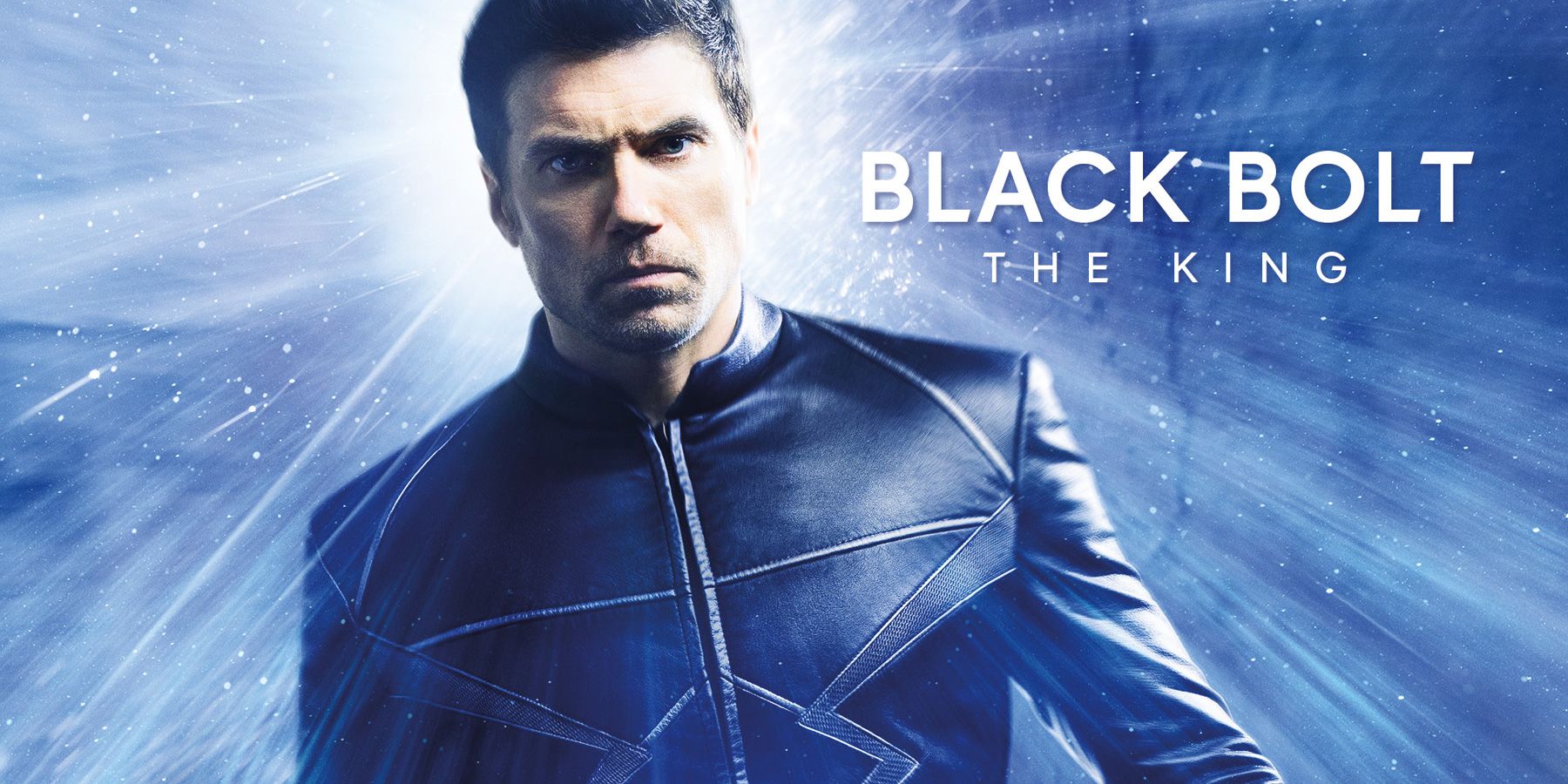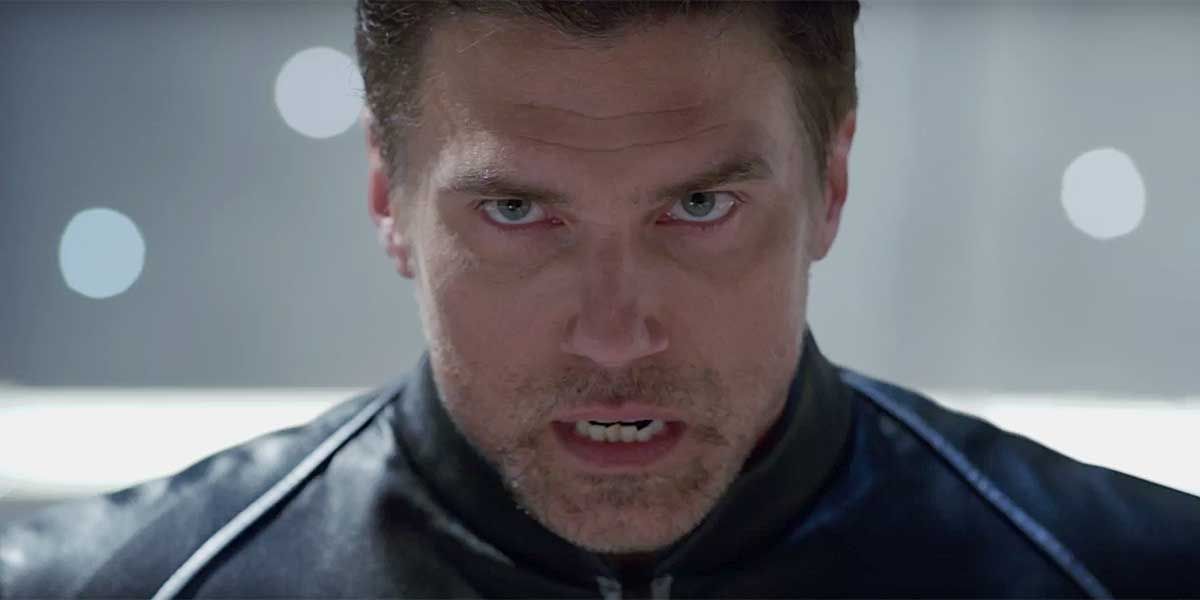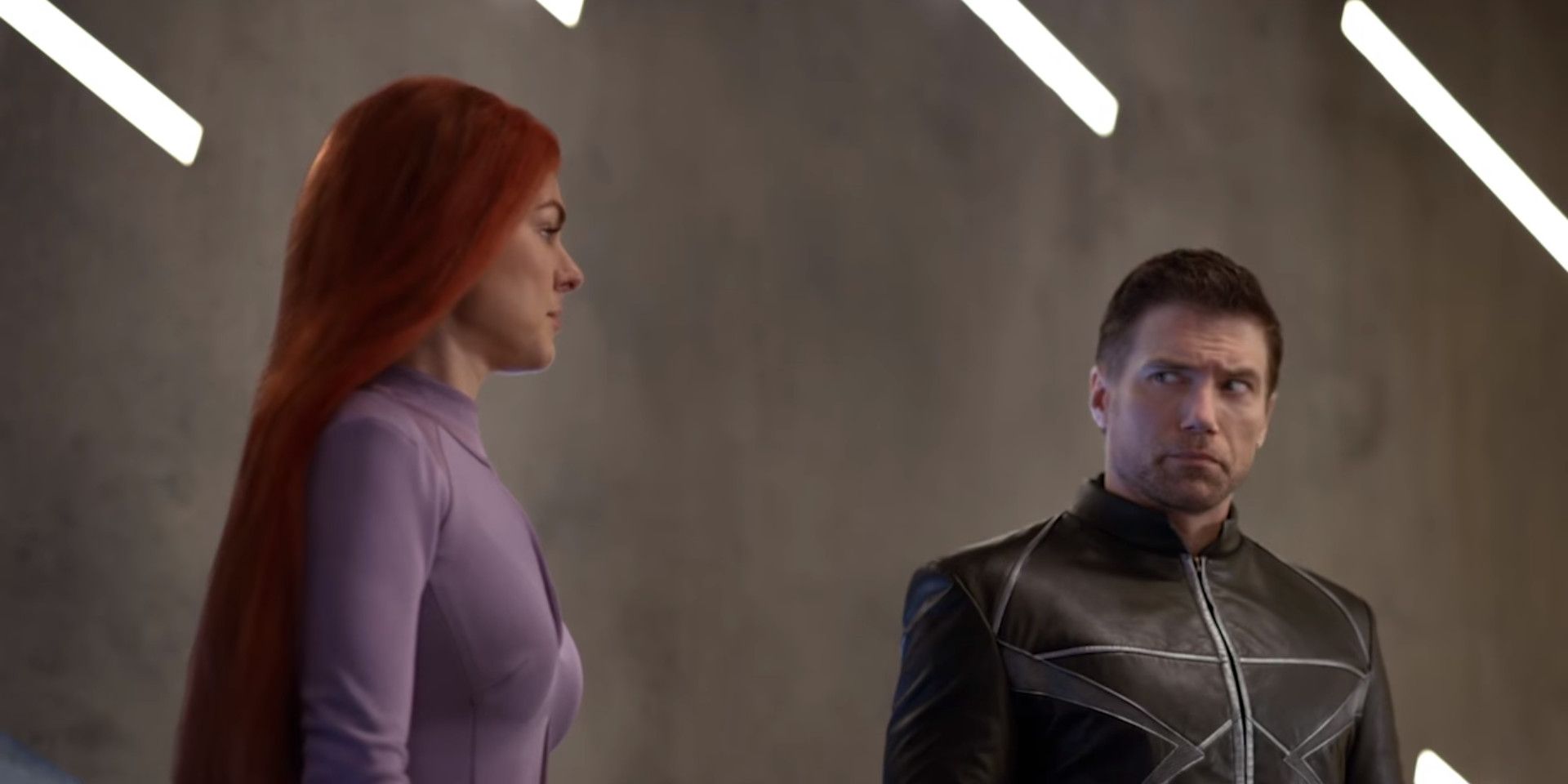Black Bolt may be need to remain silent, but the actor playing him, Anson Mount, has plenty to say about Marvel’s Inhumans.
Mount, perhaps best known for his work AMC’s Transcontinental Railroad drama Hell On Wheels, has an enviable task on the new Marvel television series. He portrays the Inhuman monarch, whose inherent ability is the cataclysmically destructive power of his speaking voice. Thus, the actor is required to play the bulk of his role in silence, communicating only through actions and expressions.
RELATED: Inhumans: The Marvel Characters’ Long Path to Television
There's more to playing Black Bolt than simply remaining quiet. Mount has had to master a very specific style of performance, and a unique form of language. But for someone who admits he long been eager to score a superhero role, it’s a challenge Mount was excited to undertake.
Much has been made about the not-talking aspect of your role. As an actor, is that a harder job than if you had to memorize lines?
Anson Mount: Much harder. First of all, I still have to memorize lines, and I still have lines – I just don't say them with my mouth. So I have to translate my lines into a language I essentially had to invent, and I get it into the muscle memory of my body, so I can actually focus on the scene when I'm doing them and not thinking about myself the whole damn time.
It's a little bit like learning to ride a horse on a set. It's a skill you acquire. You eventually get better at it, but at the beginning, you've got to rehearse it into the ground so you don't fall.
Scott was telling me that he was initially overcompensating in the writing with his emotional directions for Black Bolt.
What a lot of people don't understand is that the first draft of a TV script is not for the actors. It's for the network, and you're trying to lay out the story that's happened that he knows I'm going to take care of on the set.
But the problem I was actually having was because there were certain places in the first few episodes where there was some characters kind of like speaking for me. And I said, "Look, I can do this. And also, if you could just tell me what I'm thinking at a certain point, that's going to help me a lot.”
I actually had to encourage him to do more of that, and he did. And he's a great – he's a good writer, man! He's really fun to work with. Unfortunately, so much of the good stuff that he wrote was for my eyes only.
RELATED: The Inhumans’ Defining Traits Are Also Their Downfall
When you do certain things with your face, will viewers pick up on it and they'll know what you're saying about knowing the lines?
I think so. There are certain places where even I found that sign language would have been necessary. I mean, I got a little famous at AMC for cutting dialogue [on Hell On Wheels], because I just don't think most of it is necessary if you know what the story is about. And I think it's more intriguing to trust your audience.
But to answer your question more specifically, I don't think about what my face is doing because you've got to trust that your body knows what it's doing at a certain point. And the fact that viewers have a body so that they're gonna get it.
I mean, honestly, I think I'm a big believer in just trying to do good acting, you know? And most of the rest will take care of itself. You know you can go to the gym and build your muscles. Fine – anybody can do that. But to focus on good scene work, good editorial, good storytelling, that's really what it's about, I hope.
How other actors react when you say, "I don't speak in this role?"
If they're actors, they understand. Like, “Oh my God, how are you going to do that?” Because it's more work, really. But the layman's assumption is that it's easier because I don't have to memorize lines, which is not accurate at all.
As a result of playing this character, have you found yourself being more or less verbal when the cameras aren't rolling?
Not really. Because, I mean, TV and film, you shoot in such little spurts that it's really a fraction of your day. And I don't feel like I'm getting short shrift as an actor or as a character, you know? But it is more an ensemble show than Hell on Wheels, that's for sure. I'm like, “Days off? What is this? I've never heard of this concept!”
There's a lot of mythology behind this character. Did you feel compelled to go back and read the comics?
I read a lot, yeah. And I enjoyed it all. I wasn't that well-versed in the Inhumans before I got this job, and I did my research, like I always do, and I enjoyed it.
What was the fun discovery in the research? Was there like a revelation in there somewhere?
It was more fun to read than histories of the Transcontinental Railroad, I can tell you that right now! And it's got pictures! What I really gleaned the most is because – I think this is true – every good TV show, the protagonist has an internal journey that matches the show's external journey.
And where I think I'm starting with Black Bolt is that he's a leader who's mistaken his need to be calculated and secretive with emotional removal. And he doesn't realize that's a mistake yet. And you can't lead people by holding back the emotional part of yourself or any part of yourself, because as a king, your identity is the state. And so I think that's where I'm starting.
He has a fraught relationship with his brother Maximus. What's been fun about trying to develop that with Iwan Rheon?
Honestly, getting to know Iwan. He's a lovely guy. Very talented musician – a lot of people don't know that. Good songwriter. And just, you know, he doesn't drive, so I had to give him rides to work! And just that time on the road, it gave us a chance to develop a trust of one another that we really needed to cash in on towards the end of the series, for reasons I can't explain right now.
Had you been wanting to play someone in the Marvel Universe for a while?
Yeah, yeah, yeah, I wanted to be Gambit for a really long time, and then Channing Tatum ruined that for me! [Laughs] But I think he's gonna do a great job.



